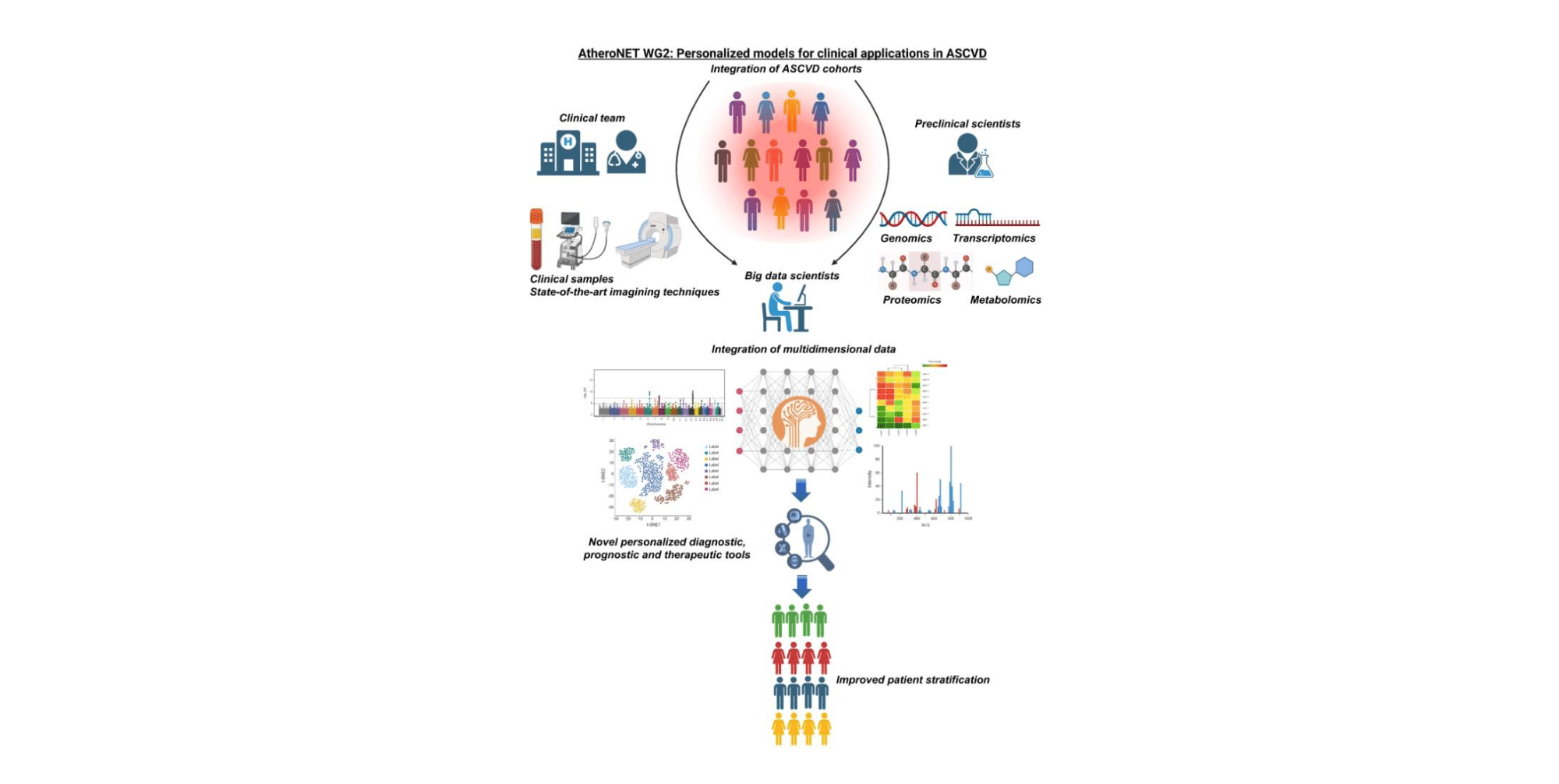European Heart Journal, Volume 44, Issue 24, 21 June 2023, Pages 2143–2145, https://doi.org/10.1093/eurheartj/ehad153
Published: 12 April 2023
Despite numerous efforts to develop algorithms for early diagnosis and prognosis of acute coronary syndromes (ACS) and major adverse cardiovascular events (MACE), there is still a high number of fatal events (range 5%–18%),1,2 suggesting that available algorithms are insufficient or, at least, not equally efficient in all patients. Discrepancies between current clinical practices in ACS management and real-life situations underline the need for a better characterization of ACS phenotypes and a better understanding of their mechanistic diversity. The use of biomarkers is undisputed in the diagnosis of primary myocardial infarction.3 However, their value is more controversial in other settings, while sensitive biomarkers reflecting susceptibility for atherosclerotic cardiovascular disease (ASCVD) progression are lacking.4–8 Considering the multifactorial pathophysiology of ASCVD and the vast number of potential contributors to plaque development and progression,9–12 a more comprehensive view and a systems approach in ASCVD research are necessary.
Current efforts to improve ACS management are based on the implementation of single omic technologies and the analysis of individual omic markers. In this context, there are limited data available on multiomic profiles of ACS patients or on comprehensive analyses of multiomic signatures and their interrelationships. Funded by the European Cooperation in Science and Technology (COST) Association, the AtheroNET consortium aims at addressing these gaps by creating a complementary network of international experts from different fields, including pre-clinical researchers, cardiologists and other clinicians, epidemiologists, clinical chemists, bioinformaticians, and systems biologists, among others, who will facilitate trans-disciplinary collaborations and lead to novel diagnostic, prognostic and mechanistic discoveries. The project (‘Action’), titled ‘Network for implementing multiomics approaches in atherosclerotic cardiovascular disease prevention and research’, comprises five working groups (WG): (i) WG1: Pathophysiological mechanisms in atherosclerosis; (ii) WG2: Personalized models for clinical applications in ASCVD; (iii) WG3: Standardization and harmonization of research; (iv) WG4: Data integration and ML/AI; and (v) WG5: Dissemination and communication. For the purpose of this article, we focus on WG2 with the overarching goal to disseminate an invitation for joining the Action and sharing patient cohorts.
In line with the FAIR principles (https://www.go-fair.org/fair-principles/) and to foster the reuse of existing data sets and biological samples, the overall aim of WG2 is to design and implement an integrative database of currently available cohorts with large number of participants and samples available for further analysis and to facilitate validation of pre-existing results (Figure 1). For this purpose, appropriate cohorts include large, cross-sectional and prospective cohorts, comprising subjects in primary and secondary prevention (post-myocardial infarction) and subjects with comorbidities, such as hypertension and diabetes, among others. In this context, in an open-science and inclusive approach, AtheroNET encourages and promotes collaborations for discovery and validation of novel omic targets in available cohorts. Subsequently, selected targets will be combined with novel and pre-existing validated data through machine learning/artificial intelligence (ML/AI) methods (WG4) to produce a multiomic model that could serve as a tool for personalized cardiovascular risk assessment.
